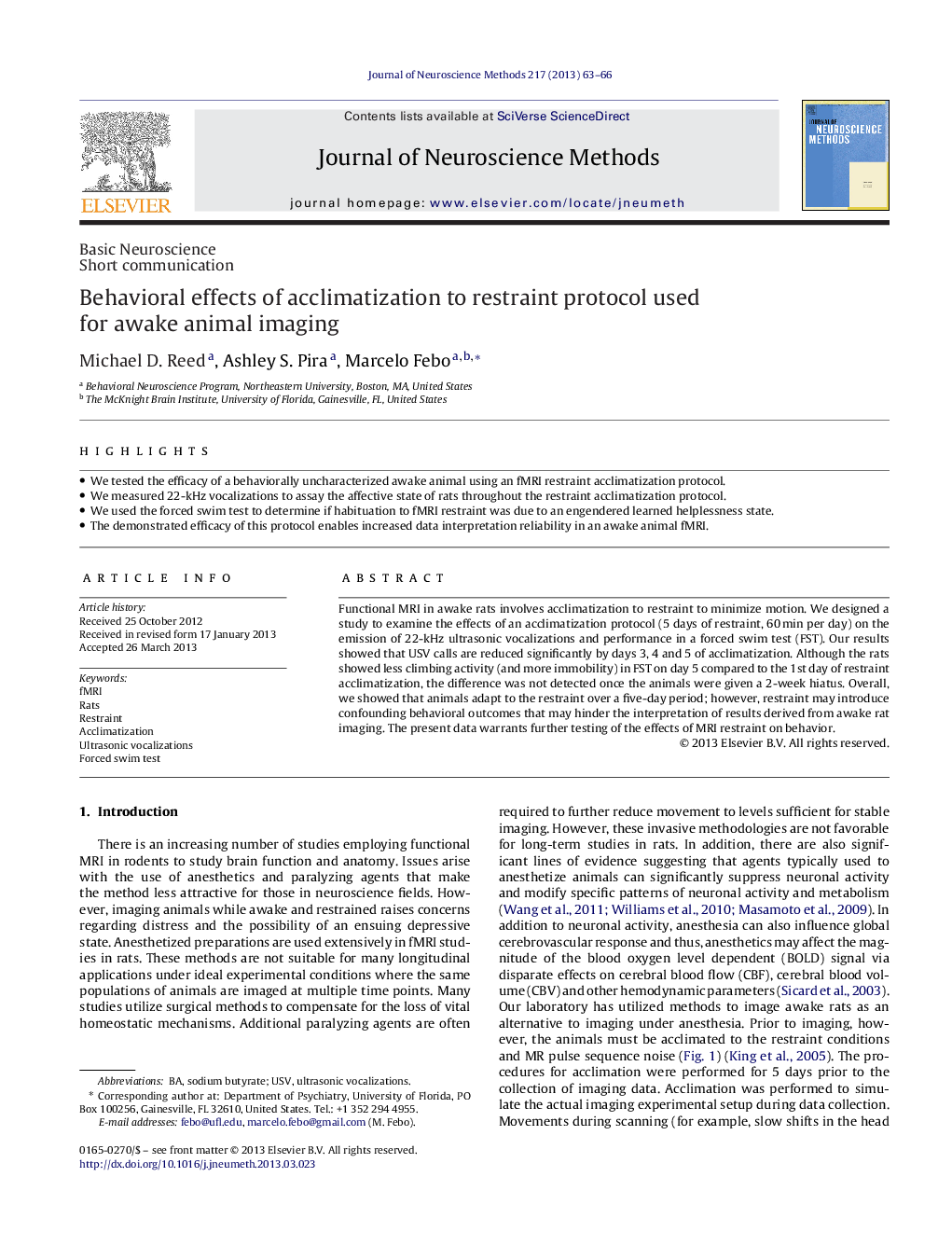| Article ID | Journal | Published Year | Pages | File Type |
|---|---|---|---|---|
| 6269042 | Journal of Neuroscience Methods | 2013 | 4 Pages |
â¢We tested the efficacy of a behaviorally uncharacterized awake animal using an fMRI restraint acclimatization protocol.â¢We measured 22-kHz vocalizations to assay the affective state of rats throughout the restraint acclimatization protocol.â¢We used the forced swim test to determine if habituation to fMRI restraint was due to an engendered learned helplessness state.â¢The demonstrated efficacy of this protocol enables increased data interpretation reliability in an awake animal fMRI.
Functional MRI in awake rats involves acclimatization to restraint to minimize motion. We designed a study to examine the effects of an acclimatization protocol (5 days of restraint, 60Â min per day) on the emission of 22-kHz ultrasonic vocalizations and performance in a forced swim test (FST). Our results showed that USV calls are reduced significantly by days 3, 4 and 5 of acclimatization. Although the rats showed less climbing activity (and more immobility) in FST on day 5 compared to the 1st day of restraint acclimatization, the difference was not detected once the animals were given a 2-week hiatus. Overall, we showed that animals adapt to the restraint over a five-day period; however, restraint may introduce confounding behavioral outcomes that may hinder the interpretation of results derived from awake rat imaging. The present data warrants further testing of the effects of MRI restraint on behavior.
